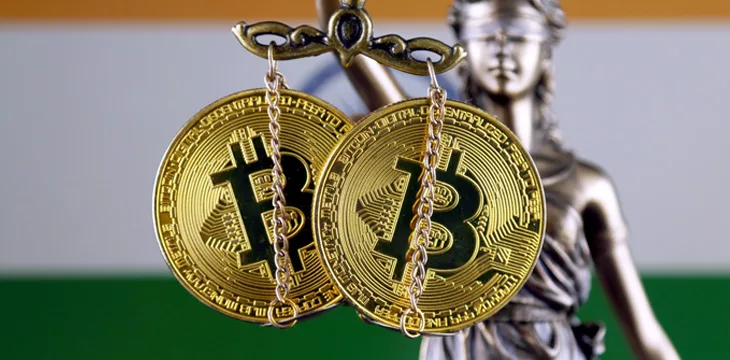|
Getting your Trinity Audio player ready...
|
Indian Finance Minister Nirmala Sitharaman is seeking global consensus and collaboration in regulating digital assets, as she feels no country would be able to regulate it single-handedly even if it tried to.
“Even before G20, and since 2020, we had discussions about it in the Finance Ministry. We are very clear that there should be global understanding on how to regulate crypto,” Sitharaman told Businessline news media in an interview.
“Bringing a regulation just within one country without a global understanding on a technology that does not break any borders is not going to help. On cryptocurrency, no single country would succeed even if it intends to,” she added.
India held the G20 presidency for one year until November 2023, with regulation of digital assets as one of its key agendas. The G20 comprises 19 countries and represents around 85% of the global gross domestic product (GDP), over 75% of the global trade, and about two-thirds of the world population. According to the G20 website, the G20 Summit is held annually under the leadership of a rotating Presidency.
“During G20 under India’s Presidency, we spoke about it [regulating digital assets]. We brought [International Monetary Fund] and [Financial Stability Board]. Well-written papers were submitted. A lot of discussion took place. I would like to go through the route of global understanding when everybody is on the same page,” Sitharaman said.
Sitharaman’s statements come days after the Securities and Exchange Board of India (Sebi), the securities and commodity markets regulator, suggested that multiple regulators should monitor digital assets-linked activities instead of a single supervisor. Sebi said it could oversee initial coin offerings (ICOs), manage digital assets classified as securities, and issue licenses for equity-market-related products.
However, the Reserve Bank of India (RBI) has suggested banning stablecoins, which are pegged to certain fiat currencies, making them less volatile than digital assets. The RBI believes that digital assets trading may result in a loss of income from money creation for central banks and bring about tax evasion.
Interestingly, while the fastest-growing major economy is looking to regulate the digital assets space, Sitharaman said in March that ‘cryptocurrencies’ cannot be a legal currency in India; they are simply assets for trading and speculation.
Taxes and regulation
Although the Indian government has not imposed an outright ban on digital assets trading, it imposes a stringent taxation on the sector—a 30% flat tax on all digital currency income with no provision to offset losses and a 1% tax deducted at source (TDS) on all transactions above Indian Rupee 10,000 ($120). Last year, the South Asian nation introduced a penalty equal to TDS for non-deduction, interest of 15% annually for late payment, and even a jail term of up to six months.
Digital asset exchanges, however, have been increasingly complying with new regulatory demands as the nation’s strong economic growth and commitment to emerging technologies lure investors and corporations.
Last December, the Financial Intelligence Unit (FIU)—the nation’s anti-money laundering (AML) agency—issued ‘compliance show cause’ orders to nine digital asset exchange: Binance, Bitfinex, Bitstamp, Bittrex, Gate.io, Huobi (now HTX), Kraken, Kucoin and Russia-based MEXC Global. The Indian government said these exchanges were operating illegally without complying with the provisions of the Prevention of Money Laundering Act.
So far, KuCoin digital asset exchange has registered with FIU after reportedly paying a penalty of $41,000, as part of its effort to comply with local regulations. Binance, too, has registered with FIU and is reportedly expected to pay a penalty of about $2 million.
Singapore-based Liminal Custody has also become a FIU-registered entity and a compliant digital asset custody for Indian institutions.
Watch: India is going to be the frontrunner in digitalization

 02-26-2026
02-26-2026 




